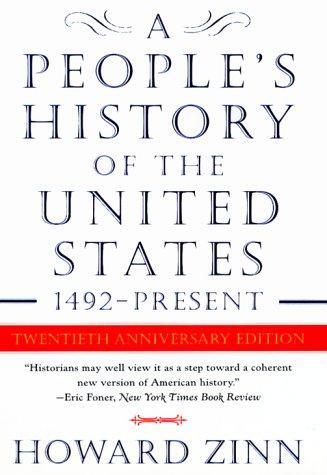
Here is a powerful quote from the book:
The present system has enabled capitalists to make laws in their own interests to the injury and oppression of the workers.
It has made the name Democracy, for which our forefathers fought and died, a mockery and a shadow, by giving to property an unproportionate amount of representation and control over Legislation.
It has enabled capitalists . . . to secure government aid, inland grants and money loans, to selfish railroad corporations, who, by monopolizing the means of transportation are enabled to swindle both the producer and the consumer. …
It has allowed the capitalists, as a class, to appropriate annually 5/6 of the entire production of the country. . . .
It has therefore prevented mankind from fulfilling their natural destinies on earth—crushed out ambition, prevented marriages or caused false and unnatural ones—has shortened human life, destroyed morals and fostered
crime, corrupted judges, ministers, and statesmen, shattered confidence, love and honor among men, and made life a selfish, merciless struggle for existence instead of a noble and generous struggle for perfection, in which equal advantages should be given to all, and human lives relieved from an unnatural and degrading competition for bread.
The above was written by the Workingmen’s party in Chicago in 1876.
The following quote is from Henry Adams in 1887 regarding President Grover Cleveland.
We are here plunged in politics funnier than words can express. Very great issues are involved. . . . But the amusing thing is that no one talks about real interests. By common consent they agree to let these alone. We are afraid to
discuss them. Instead of this the press is engaged in a most amusing dispute whether Mr. Cleveland had an illegitimate child and did or did not live with more than one mistress.
Unfortunately, not much seems to have changed. The problems the country faced 140 years ago are still around.
This book provides all the US history that was likely missing from what you were taught in an American grade school or high school. It starts with the bizarre celebration of Christopher Columbus. This “adventurer” and “discoverer” was treated pretty well by most of the indigenous people he encountered in the Americas. In return, he enslaved, tortured, and stole from them. Columbus, despite popular historical references, was nothing more than a slave trader and plunderer sponsored by the Catholic Monarchs of Spain. His sole purpose was to gather as many slaves and as much gold as he could to make his explorations profitable to himself and his sponsors. Hard to understand why he has a holiday. He was not even the first European to travel to the Americas. Leif Erikson reached the Americas 500 years before Columbus. This has been known since evidence of this was found in the 1960’s with excavations at L’Anse aux Meadows, on the northernmost tip of Newfoundland, but the public schools were still teaching the Columbus version of events when I went to school in the 1980’s. Why?
The book, at over 700 pages, takes quite a while to read. It fills in the real reasons for most of the conflicts and wars the US participated in. There is a recurring theme in these motives – all hinge on keeping overseas commerce healthy for large corporations. The book also describes the systematic mistreatment of native Americans and other minorities by the government.
The final chapter of the book is somewhat shocking. It outlines how the government is used by the wealthiest members of society to create turmoil between the middle and lower classes, so that those two classes focus their anger and attention on one another while the wealthy control most of the resources and garner little attention. The book basically calls for citizens to overthrow this government in favor of one that distributes the abundant resources more fairly. The author, Howard Zinn held a PhD in history and taught at both Spelman College and Boston University. He was asked to leave Spelman after administrators feared he was radicalizing students in the 1960’s. I have a feeling he may have been doing just that, but it may just be down to semantics – was he “radicalizing” or just educating students to the slanted way the government was working against most of his students? Zinn also served as a bombardier for the US Army during World War II, bombing targets in Berlin, Hungary, and France. He had a very anti-war stance in his later life and learned that one of his bombing missions in France had wiped out a small, but ancient city and killed over a thousand French civilians. Zinn described how the bombing was ordered—three weeks before the war in Europe ended—by military officials who were, in part, motivated more by the desire for their own career advancement than in legitimate military objectives. This was likely the start of his distrust of the military and government.
